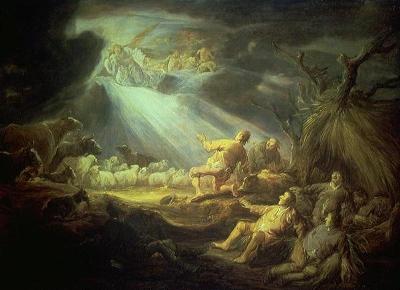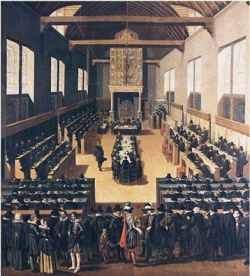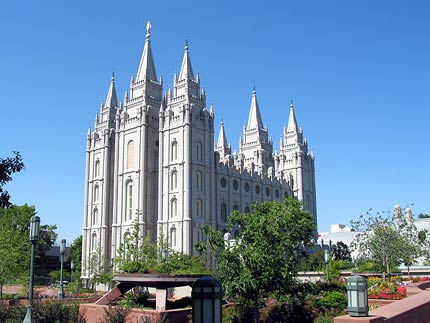 Joyce asks the following question (September 2007):
Joyce asks the following question (September 2007):
I am wondering why, with all the destruction of Jerusalem, and "no stone left on top of another" in the temple --why would John write the Book of Revelation and never even mention these events? I would think, when writing to the seven churches, it would have been important for John to note the fulfillment of the prophecies Jesus made concerning the temple as an encouragement and as a warning of the coming of similar tribulation--if, in fact, John was talking about some tribulation other than what they had already lived through.
My question is, then, what proof is there that John wrote Revelation sometime in the 90's rather than sometime before AD70?"
__________________________________
Joyce:
Great question! On the face of it, this seems like a powerful argument for an early date for the Book of Revelation (i.e., before AD 70). But upon closer inspection, I think the case for the traditional dating (about AD 95) holds up quite well.
 There are a couple of important things to consider when trying to determine the date of the Book of Revelation. First, there is no "proof" by which to date of the Book of Revelation one way or the other. There is however, a great deal of internal and external evidence which, in my estimation, points strongly toward the traditional date of about AD 95. The evidence adduced for an early date by Gentry and others is not nearly as strong as appears at first glance. I deal with this extensively in my book The Man of Sin (Click here: Riddleblog - Man of Sin - Uncovering the Truth About Antichrist). I also deal with this in an Academy lecture given at Christ Reformed Church, which can be found here: Click here: Christ Reformed Info - MP3's and Real Audio (of Academy Lectures). Scroll down to the lecture "Problems for Preterists."
There are a couple of important things to consider when trying to determine the date of the Book of Revelation. First, there is no "proof" by which to date of the Book of Revelation one way or the other. There is however, a great deal of internal and external evidence which, in my estimation, points strongly toward the traditional date of about AD 95. The evidence adduced for an early date by Gentry and others is not nearly as strong as appears at first glance. I deal with this extensively in my book The Man of Sin (Click here: Riddleblog - Man of Sin - Uncovering the Truth About Antichrist). I also deal with this in an Academy lecture given at Christ Reformed Church, which can be found here: Click here: Christ Reformed Info - MP3's and Real Audio (of Academy Lectures). Scroll down to the lecture "Problems for Preterists."
Second, the date of the Book of Revelation does not effect my interpretation of Revelation, one way or the other. As a Reformed amillennarian, I hold to the modified idealist (eclectic) position advocated by Beale, Johnson, and others. My position is not dependant upon the dating of Revelation. On the other hand, if the Book of Revelation was written after AD 70 the preterist position collapses. I get the sense that preterists develop their view from the Olivet Discourse and secondarily from 2 Thessalonians 2, and because of that understanding then have to prove that Revelation was written prior to the destruction of the Jerusalem Temple. For a host of reasons I spell out in my book, I don't believe that you'd come to the early date based upon an objective look at the internal and external evidence. I think preterists have already painted themselves into a corner elsewhere, and then have to prove the early date of Revelation to make their interpretive scheme work.
Third, an argument from silence is exactly that--a silent argument. The absence of any mention of the destruction of the Temple can be explained in one of two ways. One is that Revelation was written before the Jerusalem Temple was destroyed (on the early date interpretation). The other is that Revelation was written to the churches in Asia Minor nearly twenty-five years after the destruction of the temple, and this was not a theological or pastoral issue for these churches (the traditional dating). In fact, as Beale and others have argued, the only time the Temple is mentioned in Revelation (Revelation 11:2), the passage cannot be referring to the Temple in Jerusalem. Neither the context of the passage nor the historical circumstances of the Gentiles occupying the outer-court for 42 months, allow for this to be a reference to the Jerusalem Temple. I discuss this in my book as well (Man of Sin, 181-183).
Fourth, as Colin Hemer documents, the historical situation of the seven churches as depicted in Revelation 2-3 fit much better with the traditional date of Revelation--about AD 95. Especially important in this regard are the churches in Ephesus (which is depicted as losing its first love--a situation which wouldn't make sense if Revelation were written before AD 70), and the church of Laodicea (which John depicts as wealthy. But since an earthquake completely devastated the area in AD 61, its hard to imagine this could be the case, if Revelation were written before AD 70. It is much more likely that John is speaking of a later period). To check out Hemer's book,Click here: Amazon.com: The Letters to the Seven Churches of Asia in Their Local Setting (The Biblical Resource Series): Books
I hope that helps!
 Monday, December 24, 2007 at 11:12AM
Monday, December 24, 2007 at 11:12AM 










